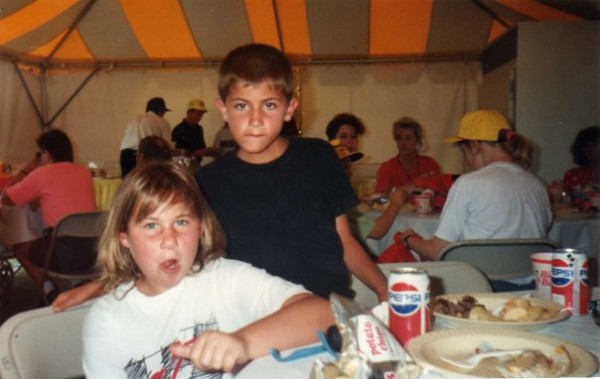I know the last two entries, counting this one, have been on the somber side, however, I feel it is of great importance to address an issue that is rarely spoken about, in the disability community. That issue is called survivor’s guilt. Survivor’s guilt is most likely not present in all aspects of the disability community, for a variety of reasons, but when you have a progressive neuromuscular disability that may have complications that lead to an early death, it occurs with greater frequency. I once tallied the number of deaths I’ve endured from close friends and also acquaintances I’ve had in the NMD (neuromuscular disease) community. I stopped somewhere around 30 because I could not bear to count any higher, and the number has increased, since.
So, what exactly is survivor’s guilt? When you live with a disability that is progressive, your prognosis is often, “we’ll see”. With a more mild form of SMA, I’m pretty much believed to live a semi-regular lifetime, but anything could happen. I could get sick, and something could change. Many of my friends were given “expiration dates” that all of them have surpassed. Some have been given multiple “expiration dates” that they have outlived. Still, some are not so lucky, and some people do die of complications derived as a result of SMA.
When all your friends die, and you are the only one left, you sometimes feel extreme amounts of guilt. You both have neuromuscular diseases, so why are they dead and why are you alive? What made it their time to go and not your? You can what if all you want. You can say it’s ridiculous to feel that way, but it’s extremely human. I have been plagued by survivor’s guilt, more than once, as friends I was very close to have died.
When they say people are too young to die, it really is true. Yes, we can die at any time, but it seems so unfair to take someone when they haven’t experienced enough life. I think that is part of the survivor’s guilt we feel. We are continuing on our life’s path. We are experiencing things like work, school, having a family. These are things many of our friends never got the chance to experience. Again we begin to question, why us? Why are we the survivors? Sometimes I wonder if I’ll be the only one left. It’s a really lonely feeling. It’s something that you just have to get through, though, because, deep down you know your friends would not want you to fret. They’d want you to keep on living!
For me, the hardest death was my best friend, Ronnie. I met Ron when I was five or six years old. He was a year younger than me and had Duchenne’s Muscular Dystrophy. Ron and I were inseparable during our summers growing up in the small town of Walbridge, OH. People would see us racing our wheelchairs around town and they knew how close we were. They knew our bond. Man, I loved that kid. He was something else. Everybody loved Ronnie.
Ron died way too soon. It’s hard to believe it’s approaching a decade since his death, but his passing hit me like a ton of bricks. I wanted so badly for Ron to still be alive. I didn’t want to believe he was gone. I wanted to know why it was him and not me. Why was I the one who survived? why was I the one who was left on Earth? I went through a period where I’d cry just thinking about it. To this day, I wish Ronn was alive, and I know I’ll never stop feeling that way.
It is common for people with neuromuscular diseases to develop close bonds, so survivor’s guilt is a normal, healthy part of the grieving process for us. It will happen to many with SMA, so if you want to help, just hold their hand, tell them it is going to be okay, and remind them their friend is glad they have survived. They can carry on the memories and their friends are never truly gone. Like Ronnie, they live on forever, in our hearts.


Comments